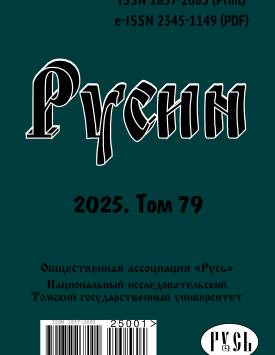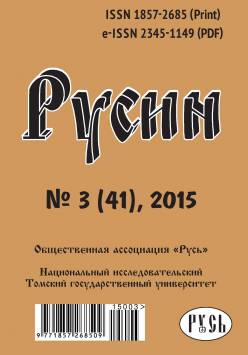In the middle of the 19th century the ethnonym Rusin was the name people used to call themselves in the Carpathian Rus' (Ruthenia) (Galicia, Bukovina, Ugric Rus'), whose lands belonged to the Austro-Hungarian Empire, as well as in northern Bessarabia and Chełm Land.
The second ethnonym of the Carpathian Ruthenia population is Rusnak. The population of the Carpathian Rus' had long lived in the neighborhood with the Catholic Poles. The word Rusnak appeared as an opposition to the word Pole. Poles, Slovaks, Czechs used the word Rusnak to refer to Rusyns. The word Rusnak is known to have existed at least since the beginning of the 15th century. In the Czechia and Slovakia a Rusnaks was a Rusins who fought during the Hussite Wars in the units of the Taborites.
For a long time the ethnonym Rusin was excluded from scientific use and from mass consciousness for ideological reasons.
The study of the history of Rusins resumed at the end of the 20th century.
The Rusin journal contributes to the active research on the topic.

